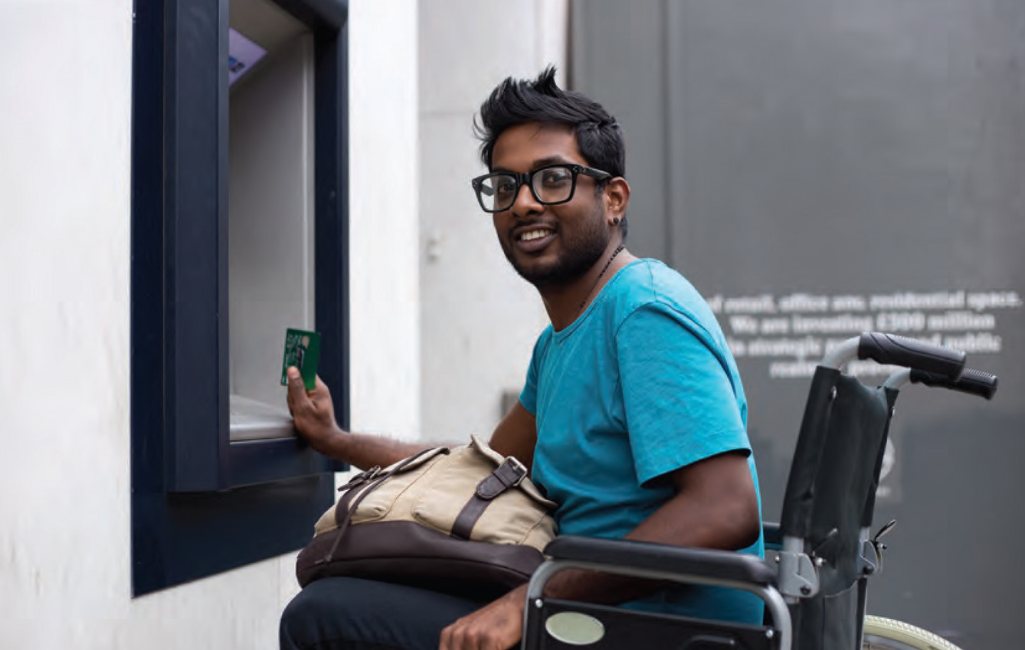In 2014, a law was passed that officially greenlit Achieving a Better Life Experience (ABLE) accounts—a tax-advantaged savings program for people with disabilities. Since then, over 137,000 accounts have been opened, helping those with disabilities to save a collective $1.25 billion to be used for disability expenses. These accounts not only allow people with disabilities to save money without the threat of affecting their social security or other government benefits, but also help them to lead more independent lives.
If you’re looking to open an ABLE account or just want the latest updates on how your finances may change in the years to come, here is everything you need to know:
Eligibility
To be eligible for an ABLE account, you must be a person with a disability that onset before the age of 26. However, for those who were previously denied accounts due to their age or are looking to open an account in the future, you may be able to do so by 2026.
In a new amendment passed in late 2022, ABLE accounts will be raising their eligibility requirement from 26 to 46 in 2026. This means that there will be about 6 million new people that these accounts will become accessible to, including about a million disabled veterans who sustained their disability during service.
Though there are ABLE programs in almost every state (about 47 and Washington D.C.), you are not required to establish your account in the state where you live. Different states offer different monetary benefits, so you’ll want to do your research before applying. To help you decide which state you should apply with, you can use a comparison tool on the ABLE National Resource Center website.
Once your account is set up, Social Security disability beneficiaries, family members, friends and employers can deposit funds into an ABLE account. Previously, you could only input $17,000 a year, but the rate increased to $18,000 as of January.
Funds
The funds you collect from your ABLE account can be used for “qualified disability-related expenses” or “QDEs.” A QDE is any expense you may have as a result of your disability. These may include financial expenses related to education, housing, transportation, employment training and support, assistive technology, personal support services, health care, financial management and other expenses that improve health, independence or quality of life.
Though you do not need to submit the receipts of your expenses, it’s highly encouraged that you keep them along with any other documentation of the expenditure. If you’re not sure if a purchase is QDE-approved, you can contact the Internal Revenue Service (IRS), the only organization that can make that decision.
ABLE and Social Security
For those who work, receive SSDI and deposit at least part of their earnings into an ABLE account, Social Security will consider your deposited money as “countable earnings” and apply work incentives to determine if you’re earning more than a certain monthly amount. This number is known as substantial gainful activity (SGA). Deposits made into an ABLE account by family members, friends, beneficiaries or others are not considered countable income for determining SGA.
But while your SSI benefits won’t be affected by having an ABLE account, your savings will be impacted with certain limitations. With an ABLE account, you can save up to $100,000 in total. If you receive SSI benefits, the first $100,000 in your ABLE account would be exempted from the SSI $2,000 individual resource limit.
When your ABLE account exceeds $100,000, your SSI benefit payments will stop until the balance falls below $100,000 again. Please note that even if your payment is suspended, it will not affect your ability to receive or be eligible to receive medical assistance through Medicaid.
To apply for an ABLE account or to learn more about how these accounts can grant you financial independence, visit ablenow.com.




